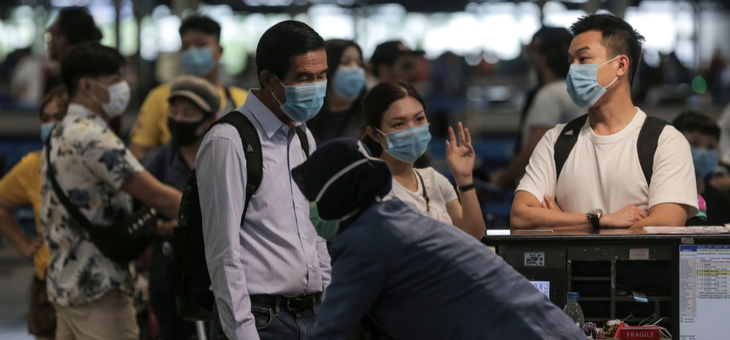Australians who have booked holidays in the next few months are starting to worry that the spread of coronavirus may prevent them from travelling. But will they be covered by their insurance companies if they decide to cancel their trips?
The unfortunate fact is that many insurance companies won’t cover travellers for coronavirus related claims.
According to Travel Talk, there is ‘some variation’ to how insurance companies deal with epidemics, pandemics and outbreaks.
Popular insurance companies, AAMI, CGU and Southern Cross Travel Insurance will not pay for claims caused by epidemics, pandemics or any outbreak of infectious disease. However, other go-tos, CGU and HBF, will cover you if you bought insurance before any alerts were issued.
Budget Direct say it would cover cancellation costs “if customers were unable to travel because of restrictions placed upon them during or after an epidemic”.
Cover-More will cover “medical expenses under many of our travel insurance policies, if a customer travelling overseas contracts the coronavirus and is hospitalised”.
“However, even if medical cover is available to you for this event, there may not be cover for travellers’ cancellation or amendment of travel plans and other additional expenses as a result of the coronavirus epidemic,” the company added.
Travel Insurance Direct (TID) will cover anyone who purchased cover before 30 January but has cut off cover for anyone who purchased policies after that date.
“On 30 January, the World Health Organisation declared a Public Health Emergency of International Concern (PHEIC) and described the situation as an ‘unprecedented outbreak’. In addition, person-to-person transmissions, before symptoms appear, are also occurring,” said TID in a statement.
“Our previous advice stated that where cover applied, we would no longer cover claims arising from any event related to coronavirus for travel to and/or from China from 23 January 2020. This cut-off of cover now also extends to travel to and/or from all other destinations.”
Many travel insurance policies may already contain exclusions relating to a contagious disease, epidemic or pandemic, or to a government prohibition or regulation, so travellers are advised to read policy wording for the full terms, conditions, limitations and exclusions.
“Whether or not you’re covered can come down to when you took out your policy and whether you travelled before or after a travel warning was issued,” said finance expert Effie Zahos.
“Always be sure to look up your destination on Smartraveller and make sure you are aware of any risks or safety advice.”
Most policies will also not cover you in the event of Department of Foreign Affairs and Trade (DFAT/Smartraveller) ‘do not travel’ or ‘reconsider travel’ advice.
On 30 January, the federal government increased its travel advice to all of China from “exercise normal safety precautions” to “reconsider your need to travel”, so many insurance policies will effectively be voided. Check your PDS for full details and speak to your insurer if you have any queries.
Have you purchased travel insurance recently for a future trip? Do you know if you’re still covered?
If you enjoy our content, don’t keep it to yourself. Share our free eNews with your friends and encourage them to sign up.
Related articles:
Flying? How to avoid coronavirus
New virus has authorities on alert
What travel insurance won’t cover

